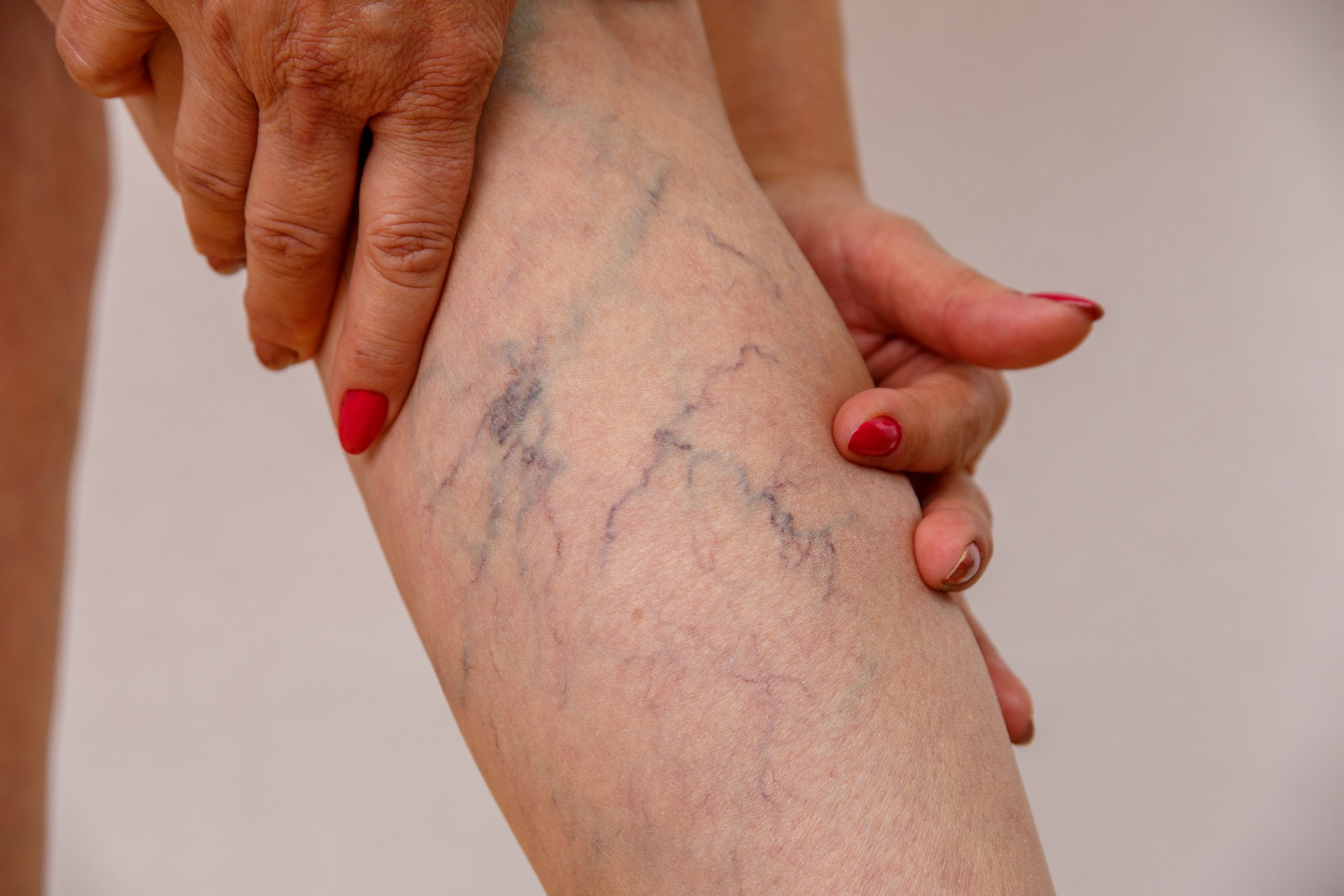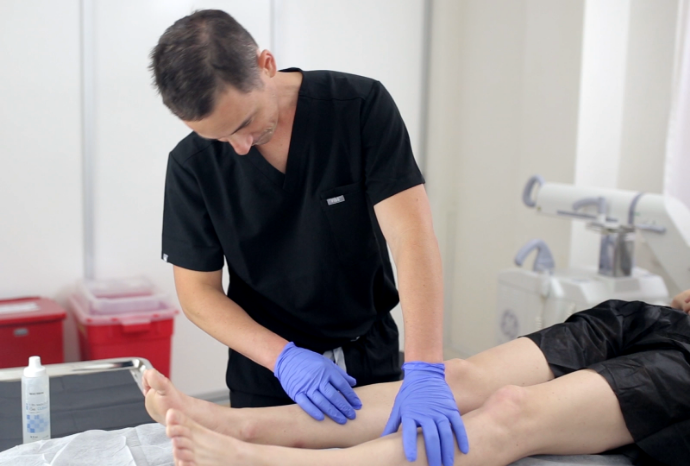What Kind of Doctor Treats Veins? What Is a Vein Specialist Called?
When it comes to vein-related issues, many people often find themselves confused about the type of doctor they should visit. Vein problems, such as varicose veins, spider veins, or chronic venous insufficiency, can lead to discomfort and even serious complications if left untreated. In this article, we’ll explore the specific type of doctor who specializes in treating veins and explain what a vein specialist is called, so you can seek the appropriate care for your condition.

Understanding Vein Problems: What Causes Vein Issues?
Before identifying which doctor treats veins, it's important to understand what causes vein issues. Vein problems often arise when the valves inside the veins stop working properly. Veins are responsible for carrying blood back to the heart, and when these valves malfunction, blood can pool in the veins, causing them to become swollen and twisted.
Some common vein conditions include:
- Varicose veins: Enlarged, swollen veins that are often visible beneath the skin.
- Spider veins: Smaller, red, blue, or purple veins that are closer to the surface of the skin.
- Chronic venous insufficiency (CVI): A condition where the veins struggle to carry blood back to the heart.
- Deep vein thrombosis (DVT): A blood clot that forms in a deep vein, typically in the legs.
These conditions can lead to symptoms like pain, swelling, heaviness, and fatigue in the legs, and in severe cases, they can cause ulcers, blood clots, or even deep vein thrombosis.
What Is a Vein Specialist Called?
If you're experiencing vein problems, the type of doctor you should see is called a phlebologist. A phlebologist is a medical professional who specializes in the diagnosis, treatment, and management of vein conditions, particularly those affecting the veins in the legs. Phlebologists are often trained in minimally invasive procedures to treat conditions like varicose veins and spider veins.
It’s worth noting that many phlebologists are also trained vascular surgeons. These surgeons are capable of performing more complex surgical procedures if necessary, but phlebologists typically focus on non-surgical treatments such as sclerotherapy, laser therapy, or endovenous laser treatments.

Types of Vein Doctors: Who Can Treat Your Veins?
In addition to phlebologists, there are other healthcare professionals who specialize in treating veins. Understanding the different types of doctors and their areas of expertise can help you determine who you should see for your vein issues:
- Vascular Surgeon: A vascular surgeon is a medical doctor who specializes in the treatment of blood vessels, including veins and arteries. They have extensive training in performing surgery on veins, which may be necessary for more severe cases of vein disease. While phlebologists focus on non-invasive treatments, vascular surgeons can perform procedures like vein stripping, bypass surgery, or even angioplasty.
- Dermatologist: Some dermatologists also treat vein-related conditions, particularly when it comes to spider veins or small varicose veins. These specialists are experts in skin conditions and can offer treatments like sclerotherapy and laser therapy for less severe vein problems. However, for more complex vein issues, you may need to see a phlebologist or vascular surgeon.
- Interventional Radiologist: Interventional radiologists are medical doctors who specialize in using imaging techniques, such as ultrasound or X-rays, to guide minimally invasive procedures. Some interventional radiologists specialize in treating veins through techniques like endovenous laser therapy (EVLT) or radiofrequency ablation, which are effective for treating varicose veins.
- Nurses and Technicians: While not doctors, certain healthcare professionals, like registered nurses and technicians, play a key role in vein treatment. They assist with sclerotherapy, ultrasound-guided treatments, and patient care before and after procedures. They work closely with vein specialists to ensure you receive the best care.
What Conditions Can a Vein Specialist Treat?
A vein specialist treats a wide range of vein-related conditions. Some of the most common conditions include:
- Varicose veins: Swollen, twisted veins that can cause discomfort, pain, and aesthetic concerns.
- Spider veins: Smaller, visible veins that often appear in clusters on the legs or face.
- Venous insufficiency: A condition where veins cannot effectively return blood to the heart, leading to swelling, leg fatigue, and ulcers.
- Deep vein thrombosis (DVT): A blood clot in a deep vein that can be dangerous if not treated promptly.
- Leg ulcers: Open sores that can develop when veins aren’t functioning properly and blood isn’t circulating correctly.
A vein specialist will diagnose the condition through physical examination, medical history, and sometimes ultrasound imaging, which allows them to visualize the veins and determine the extent of the problem.
Common Treatments Offered by Vein Specialists
Vein specialists offer a variety of treatments depending on the severity of the condition. Here are some common treatment options:
- Sclerotherapy: This treatment involves injecting a special solution into the affected veins, causing them to collapse and fade over time. Sclerotherapy is often used for smaller varicose veins or spider veins.
- Laser Therapy: Laser treatments use focused light to treat varicose veins. This technique is minimally invasive and can be effective for smaller veins that don’t require surgery.
- Endovenous Laser Treatment (EVLT): This procedure uses laser energy to treat larger varicose veins. It’s done through a small incision and is considered less invasive than traditional surgery.
- Radiofrequency Ablation (RFA): In this procedure, heat is used to close off varicose veins. A catheter is inserted into the vein, and radiofrequency energy is applied to seal the vein shut, which causes it to shrink and be absorbed by the body.
- Vein Stripping and Ligation: In more severe cases, a vascular surgeon may need to remove damaged veins through a procedure called vein stripping. This is usually performed when less invasive treatments are ineffective.
Conclusion: Choosing the Right Doctor for Vein Treatment
When seeking treatment for vein-related issues, it’s crucial to consult with a specialist who is qualified to address your specific condition. A phlebologist is the doctor most commonly associated with vein care, but depending on the severity and complexity of your condition, you may also need to see a vascular surgeon or other specialists. Understanding the various types of vein doctors and their areas of expertise ensures that you receive the most appropriate care for your condition.
If you’re dealing with vein problems, seeking help from a vein specialist is the first step toward finding relief and improving your quality of life.
Comments
Post a Comment